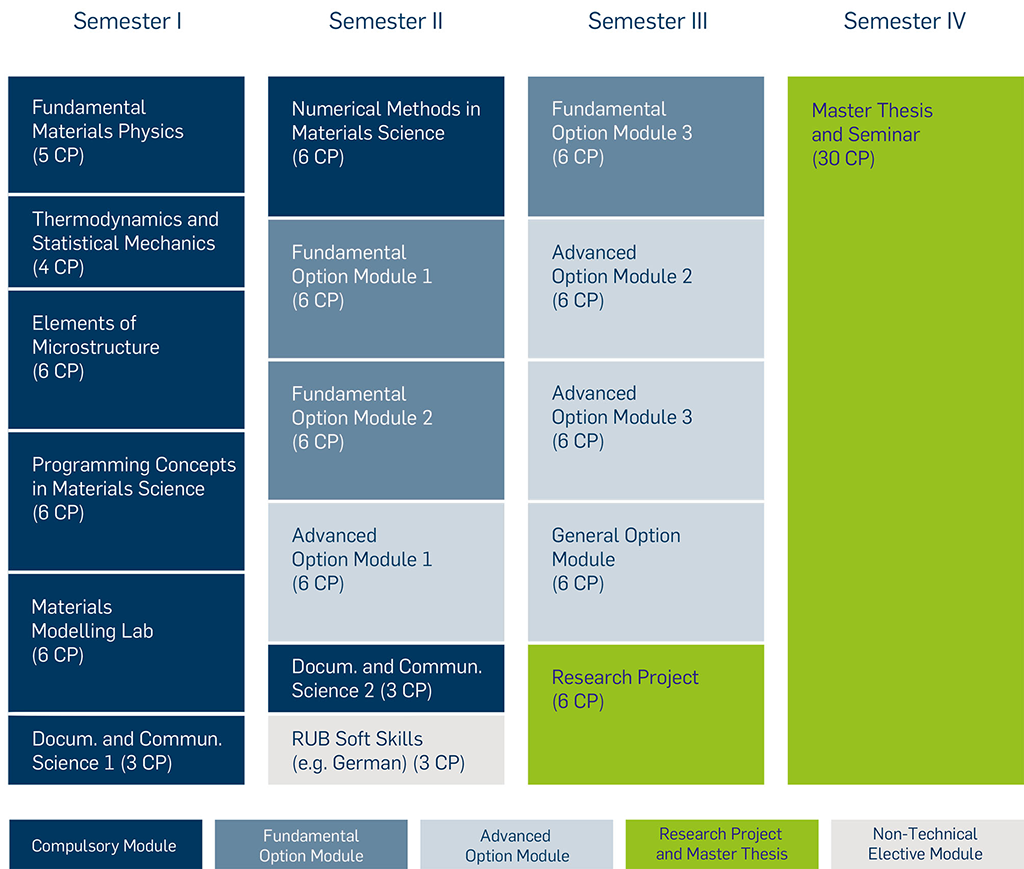- Ruhr-Universität Bochum
Course Scheme

In 2024 a new course scheme was established. It is valid from winter term 2024/25. The old scheme is depicted below and still valid for students that started their stusdies before 2024.
Compulsory modules
In the first two semesters all students have to complete four basic modules in fundamental materials physics, thermodynamics and statistical physics, elements of microstructure, programming concepts, and numerical methods in materials science. Throughout these courses you will acquire a profound knowledge in advanced experimental and numerical methods of materials science and engineering. The hands-on module materials modelling lab will allow you to get an overview of important materials simulation methods on different length scales.
Option modules
In the fundamental and advanced option modules, you can broaden your horizon and deepen your basic knowledge on current material challenges. There are ample possibilities to gain practical experience by participating in active research projects. Thus, you will gain hands-on experience with state-of-the-art numerical and experimental methods and develop the method competence and skills required for problem solving. The scientific modules are complemented by a general option course that can be freely chosen from any of RUB’s master courses.
Research project and master thesis
In the third and fourth semester, you will work on a research project and write your master thesis. Supported by a mentor you will work on scientific project and compile your research results in a final report.
Non technical modules
Throughout the masters course, you attend lectures in professional key competences (soft skills).
Course Scheme until 2024
This course scheme is valid for students that started before 2024. The lectures of the third semester will take place for the last time in winter term 2024/25. The corresponding (repeating) exams take place for two more years.

Basic lectures
In the first semester all students have to complete four basic courses in programming, elements of microstructure, solid state physics and statistical mechanics/fundamental materials physics.
Throughout these courses you will acquire a profound knowledge in advanced experimental and numerical methods of materials science and engineering.
Specialization / Optional courses
In optional and specialization lectures, you can broaden your horizon and deepen your basic knowledge on current material challenges. There are ample possibilities to gain practical experience by participating in active research projects. Thus, you will gain hands-on experience with state-of-the-art numerical and experimental methods and develop the method competence and skills required for problem solving.
Thesis
In the final semester, you prepare your Master thesis. Supported by a mentor you will work on a scientific project and compile your research results in a final report.
Throughout the masters course, you attend lectures in professional key competences (soft skills).
